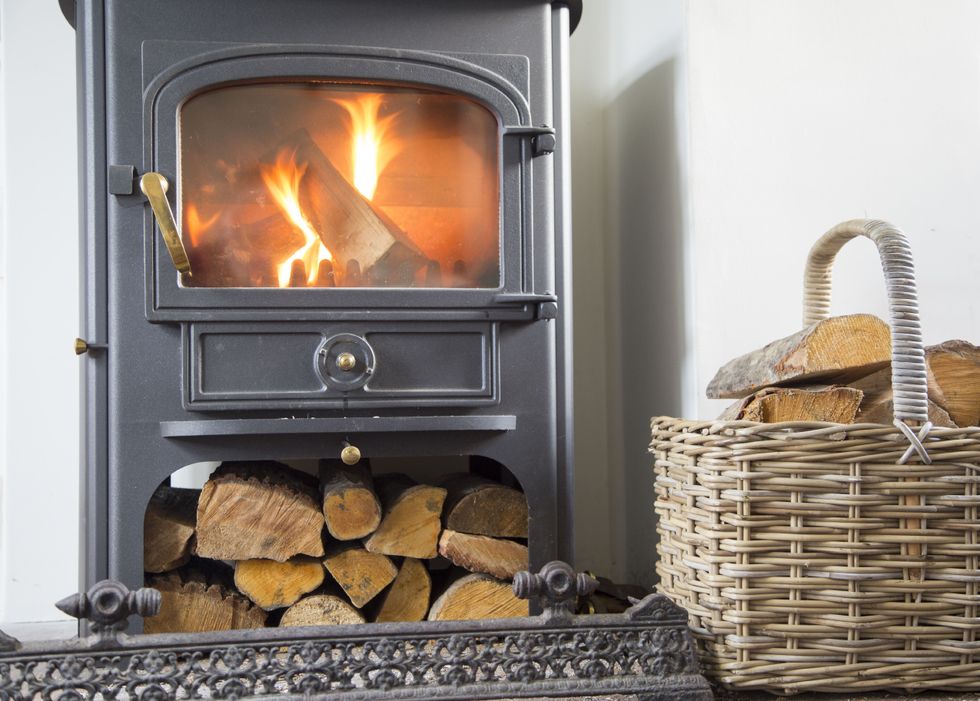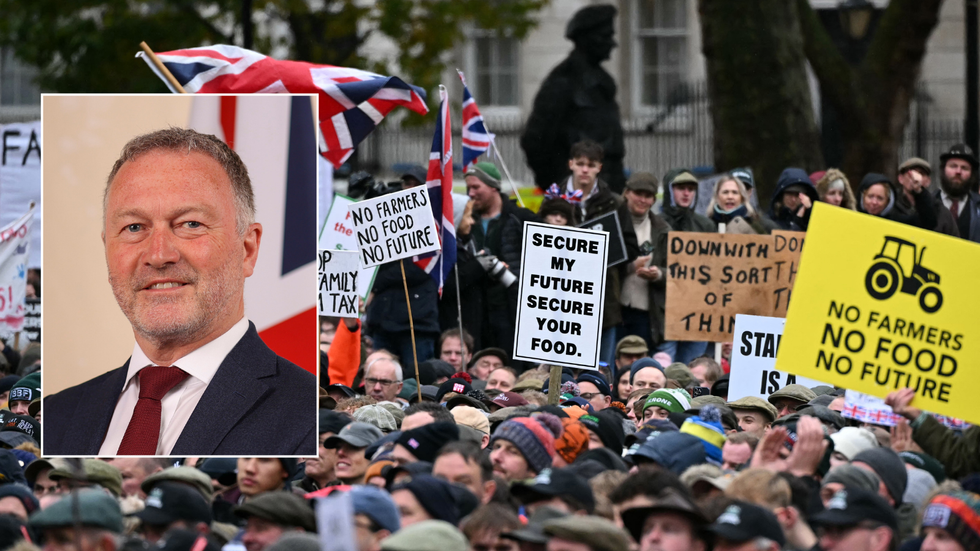Government plan to ban oil fired boilers by 2
GBN
OPINION: Farmer James Wright exposes Labour's underhand war on rural folk, and it's not just inheritance tax for farmers
Don't Miss
Most Read
Trending on GB News
Recently, Labour and Liberal Democrat MPs threw their support behind the Clean Heat Market Mechanism.
This policy gives Ministers the power to fine boiler manufacturers for not selling enough heat pumps, but the reality is those costs will be passed on to people installing gas and oil boilers, making life even harder for rural communities already struggling with rising energy costs.
Take Clovelly, a village perched along the Devon coastline, with its cobbled streets and historic cottages. Dating back to the 9th century, Clovelly is a living, breathing piece of British history.
But as the nation races towards Net Zero, rural communities like this are being hit with policies that politicians and civil servants in city centre offices simply don’t understand.
Rural homes are less energy efficient and are home to many of Britain’s listed buildings. These are some of the oldest homes in the country, and with that age comes unique challenges.
Installing double glazing, one of the most basic energy-saving upgrades, is often impossible due to strict listed-building regulations or conservation areas, common in many villages.
These rules are there to preserve architectural authenticity, but they leave homeowners trapped in inefficient, expensive-to-heat properties.
That’s just one example of how policies designed to tackle climate change can ignore the realities of rural life. It’s not just old buildings under fire, either.
In April 2024, the Scottish Government banned direct-emission heating systems in new-build homes. That’s civil servant speak for wood-burning stoves, which many rural families rely on as an affordable and sustainable source of heat.
This policy, likely cooked up in a cosy office in Edinburgh, sparked outrage across rural Scotland, where alternative heating options are prohibitively expensive, and where wood and sod is readily available.
After months of backlash, the government reversed the ban, proving just how disconnected these decision-makers are.
 While wood-burners are not banned outright in the UK, strict regulations apply within smoke control areasGETTY
While wood-burners are not banned outright in the UK, strict regulations apply within smoke control areasGETTYMeanwhile, Labour’s decision to means-test the Winter Fuel Payment has left 10 million pensioners in the cold. Literally.
This move has been met with legal challenges and widespread public outrage, especially in rural areas where heating costs are far higher than in towns and cities.
At the same time, Labour claims to support rural fuel duty relief, recognising the extra costs faced by those who rely on cars and heating oil in rural areas. How can they cut support with one hand and acknowledge its importance with the other?
It’s inconsistent, unfair, and typical of their know nothing approach to rural Britain. Rural workers already face an uphill battle. Wages in rural areas lag 15-20% behind city centres, with the most isolated communities hit hardest.
Add in higher living costs, especially for transport and housing, and it’s no wonder young people are leaving these areas in droves, seeking better opportunities in the cities.
If we want to reverse this trend, we need to fix the basics. One way to level the playing field is through better connectivity, and there’s good news on this front.
Starlink, the satellite internet service developed by SpaceX, is a game-changer for rural internet. For just £460, you can install Starlink and get high-speed internet, compared to the thousands it costs to roll out traditional broadband in hard-to-reach areas.
This leap in technology will transform rural economies, enabling remote work, online education, and even more precision farming. The solutions are there, but they need real investment and focus, not just lip service.
LATEST MEMBERSHIP OPINION:
 Defra Secretary Steve Reed has doubled down on the farm tax, refusing to apologise for any concern it may caused Getty/HoC
Defra Secretary Steve Reed has doubled down on the farm tax, refusing to apologise for any concern it may caused Getty/HoCOne of the biggest problems is the sheer disconnect between policymakers and the communities they claim to represent.
Steve Reed, Labour’s Environment Secretary, has visited just one farm since July, despite claiming in the Yorkshire Post that Labour will “restore trust” with rural communities.
Quite the brass neck when you consider they’ve introduced family farm tax, increased the cost of boilers and cut winter fuel payment.
When you consider Labour now has 105 rural MPs, many in traditional Conservative heartlands, as last week’s vote on heat pumps shows, they clearly don’t understand and, frankly, don’t care about what rural Britain needs to thrive.
The reality is the march to Net Zero is inevitable, Labour have made that clear, but it must be done in a way that makes sense for everyone.
Not just urban dwellers with modern homes and public transport on their doorsteps. Rural Britain is part of our identity, and its communities face unique challenges that need unique solutions.
One-size-fits-all policies simply won’t work. The heart of Britain’s countryside lies in places like Clovelly, built on centuries of history, innovation, and resilience.
If politicians are serious about tackling climate change, they need to stop treating rural areas as an afterthought.
That means engaging with the people who live and work there, crafting policies that balance environmental goals with economic and social realities, and preserving the vibrant, working countryside that makes Britain what it is.
It’s not rocket science. It’s common sense. And it’s about time Westminster got a dose of it.







